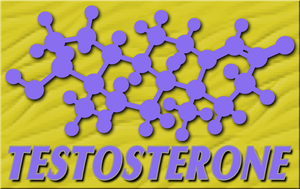Introduction to Testosterone Deficiency Syndrome
Testosterone deficiency syndrome (TDS), also known as hypogonadism, is a clinical condition characterized by low levels of testosterone in the bloodstream. This hormonal imbalance can significantly affect the quality of life for American men, particularly as they age. Understanding TDS is crucial for developing effective management strategies that cater to the unique needs of this demographic.
The Prevalence of Testosterone Deficiency in Aging Men
As men age, the natural production of testosterone tends to decline. Studies indicate that approximately 20% of men over the age of 60 suffer from TDS. This prevalence increases with age, affecting nearly 30% of men in their 70s and 80s. The implications of this condition extend beyond mere statistics, influencing various aspects of health and well-being.
Symptoms and Diagnosis of TDS
The symptoms of testosterone deficiency can be subtle and often mistaken for normal aging. Common signs include reduced libido, erectile dysfunction, fatigue, loss of muscle mass, and mood changes such as depression or irritability. Diagnosing TDS involves a comprehensive assessment, including a detailed medical history, physical examination, and blood tests to measure testosterone levels. It is essential for American men to be proactive in discussing these symptoms with their healthcare providers to ensure timely diagnosis and intervention.
Health Consequences of Untreated TDS
Untreated testosterone deficiency can lead to a myriad of health issues. These include increased risk of osteoporosis, cardiovascular diseases, and metabolic syndrome, which encompasses obesity, high blood pressure, and insulin resistance. The psychological impact of TDS should not be underestimated, as it can contribute to diminished quality of life and mental health challenges. Addressing TDS promptly can mitigate these risks and enhance overall health outcomes.
Strategies for Managing Testosterone Deficiency
Management of TDS typically involves testosterone replacement therapy (TRT), which can be administered through various methods such as injections, gels, patches, or pellets. The choice of therapy should be individualized, taking into account the patient's lifestyle, preferences, and medical history. Regular monitoring is crucial to assess the effectiveness of TRT and to adjust dosages as necessary.
Lifestyle Modifications to Support TRT
In addition to medical interventions, lifestyle modifications play a pivotal role in managing TDS. Regular physical exercise, particularly resistance training, can help maintain muscle mass and improve overall fitness. A balanced diet rich in nutrients essential for testosterone production, such as zinc and vitamin D, can also support hormonal health. Moreover, stress management techniques and adequate sleep are vital components of a holistic approach to TDS management.
The Role of Regular Health Check-ups
Regular health check-ups are essential for American men to monitor their testosterone levels and overall health. These check-ups provide an opportunity to discuss any symptoms of TDS and to adjust treatment plans as needed. Engaging in open dialogues with healthcare providers can empower men to take control of their health and well-being.
Conclusion: Empowering American Men in the Face of TDS
Testosterone deficiency syndrome is a significant health concern for aging American men, but it is not an inevitable part of aging. With proper diagnosis, tailored treatment, and lifestyle adjustments, men can effectively manage TDS and maintain a high quality of life. By raising awareness and fostering proactive health management, we can empower American men to navigate the challenges of TDS with confidence and resilience.
Contact Us Today For A Free Consultation

- Understanding Testosterone Deficiency: Symptoms, Diagnosis, and Management in American Men [Last Updated On: February 20th, 2025] [Originally Added On: February 20th, 2025]
- Stress-Induced Testosterone Decline in American Males: Causes and Management Strategies [Last Updated On: March 16th, 2025] [Originally Added On: March 16th, 2025]
- Testosterone Deficiency Syndrome: Hormone Therapy Benefits and Holistic Management for American Males [Last Updated On: March 19th, 2025] [Originally Added On: March 19th, 2025]
- Testosterone Deficiency in American Men: Symptoms, Diagnosis, and Energy-Boosting Treatments [Last Updated On: March 20th, 2025] [Originally Added On: March 20th, 2025]
- Testosterone Deficiency in American Men: Impacts on Mood and Mental Health [Last Updated On: March 20th, 2025] [Originally Added On: March 20th, 2025]
- Environmental Toxins Linked to Rising Testosterone Deficiency in U.S. Males [Last Updated On: March 20th, 2025] [Originally Added On: March 20th, 2025]
- Testosterone Deficiency in American Men: Impacts on Muscle Mass and Treatment Strategies [Last Updated On: March 20th, 2025] [Originally Added On: March 20th, 2025]
- Testosterone Deficiency Syndrome: Impacts on Prostate Health and Management Strategies [Last Updated On: March 21st, 2025] [Originally Added On: March 21st, 2025]
- Testosterone Deficiency Syndrome: Importance of Regular Monitoring and Management in American Men [Last Updated On: March 21st, 2025] [Originally Added On: March 21st, 2025]
- Smoking's Impact on Testosterone Levels and TDS Risk in American Males [Last Updated On: March 21st, 2025] [Originally Added On: March 21st, 2025]
- Vitamin D's Role in Managing Testosterone Deficiency in American Males [Last Updated On: March 22nd, 2025] [Originally Added On: March 22nd, 2025]
- Chronic Illnesses and Their Impact on Testosterone Deficiency in American Males [Last Updated On: March 22nd, 2025] [Originally Added On: March 22nd, 2025]
- Alcohol's Impact on Testosterone and Risk of TDS in American Males [Last Updated On: March 22nd, 2025] [Originally Added On: March 22nd, 2025]
- Zinc's Vital Role in Combating Testosterone Deficiency in American Men [Last Updated On: March 22nd, 2025] [Originally Added On: March 22nd, 2025]
- Magnesium's Role in Managing Testosterone Deficiency Syndrome in American Males [Last Updated On: March 22nd, 2025] [Originally Added On: March 22nd, 2025]
- Testosterone Deficiency Syndrome: Understanding Its Impact on Hair Loss in Men [Last Updated On: March 23rd, 2025] [Originally Added On: March 23rd, 2025]
- Testosterone Deficiency Syndrome: Impacts on Immune Function in American Men [Last Updated On: March 23rd, 2025] [Originally Added On: March 23rd, 2025]
- Testosterone Deficiency and Cognitive Decline in American Men: Impacts and Interventions [Last Updated On: March 23rd, 2025] [Originally Added On: March 23rd, 2025]
- Testosterone Deficiency Impacts Muscle, Fat, and Bone Health in American Males [Last Updated On: March 23rd, 2025] [Originally Added On: March 23rd, 2025]
- Testosterone Deficiency in American Men: Impacts on Libido and Holistic Management [Last Updated On: March 23rd, 2025] [Originally Added On: March 23rd, 2025]
- Omega-3 Fatty Acids: A Promising Approach to Managing Testosterone Deficiency in Men [Last Updated On: March 23rd, 2025] [Originally Added On: March 23rd, 2025]
- Soy Consumption and Testosterone Levels in American Men with TDS: A Comprehensive Review [Last Updated On: March 23rd, 2025] [Originally Added On: March 23rd, 2025]
- Testosterone Deficiency and Depression: Exploring the Link in American Men [Last Updated On: March 23rd, 2025] [Originally Added On: March 23rd, 2025]
- Ashwagandha: A Natural Remedy for Testosterone Deficiency in American Males [Last Updated On: March 24th, 2025] [Originally Added On: March 24th, 2025]
- Shift Work's Impact on Testosterone Levels in American Males: A Growing Concern [Last Updated On: March 24th, 2025] [Originally Added On: March 24th, 2025]
- Testosterone Deficiency Syndrome: Impacts on Skin Health and Management Strategies [Last Updated On: March 24th, 2025] [Originally Added On: March 24th, 2025]
- Blue Light Exposure Linked to Testosterone Deficiency in American Men: Mitigation Strategies [Last Updated On: March 24th, 2025] [Originally Added On: March 24th, 2025]
- Testosterone Deficiency and Sleep Apnea: A Bidirectional Health Concern for American Males [Last Updated On: March 25th, 2025] [Originally Added On: March 25th, 2025]
- Testosterone Deficiency and Anemia: Understanding Links and Managing Health in American Males [Last Updated On: March 25th, 2025] [Originally Added On: March 25th, 2025]
- Weight Training Boosts Testosterone: A Solution for American Men with TDS [Last Updated On: March 25th, 2025] [Originally Added On: March 25th, 2025]
- Testosterone Deficiency and Joint Health in American Males: Impacts and Management Strategies [Last Updated On: March 25th, 2025] [Originally Added On: March 25th, 2025]
- Testosterone Deficiency in American Male Athletes: Symptoms, Impact, and Management Strategies [Last Updated On: March 25th, 2025] [Originally Added On: March 25th, 2025]
- Testosterone Deficiency in American Men: Impacts on Dental Health and Management Strategies [Last Updated On: March 25th, 2025] [Originally Added On: March 25th, 2025]
- Air Pollution's Impact on Testosterone Levels and TDS in American Males [Last Updated On: March 26th, 2025] [Originally Added On: March 26th, 2025]
- Boron Supplementation: A Promising Approach to Managing Testosterone Deficiency in American Males [Last Updated On: March 26th, 2025] [Originally Added On: March 26th, 2025]
- Testosterone Deficiency Syndrome: Impacts on Vision Health in American Men [Last Updated On: March 26th, 2025] [Originally Added On: March 26th, 2025]
- Pesticide Exposure Linked to Testosterone Deficiency in American Men: Risks and Reduction Strategies [Last Updated On: March 26th, 2025] [Originally Added On: March 26th, 2025]
- Diet Soda Consumption Linked to Lower Testosterone Levels in American Men [Last Updated On: March 26th, 2025] [Originally Added On: March 26th, 2025]
- EMF Exposure and Testosterone Levels: Implications for TDS in American Males [Last Updated On: March 27th, 2025] [Originally Added On: March 27th, 2025]
- Chronic Stress and Testosterone Deficiency in American Males: Impacts and Management [Last Updated On: March 27th, 2025] [Originally Added On: March 27th, 2025]
- High-Fat Diets and Testosterone: Impacts and Dietary Strategies for American Males [Last Updated On: March 27th, 2025] [Originally Added On: March 27th, 2025]
- Testosterone Deficiency Syndrome: Impacts on Liver Health in American Males [Last Updated On: March 27th, 2025] [Originally Added On: March 27th, 2025]
- Testosterone Deficiency Linked to Pancreatic Health Issues in American Men [Last Updated On: March 27th, 2025] [Originally Added On: March 27th, 2025]
- Testosterone Deficiency Linked to Hearing Loss in American Males: Insights and Implications [Last Updated On: March 27th, 2025] [Originally Added On: March 27th, 2025]
- Testosterone Deficiency in American Males: Impacts on Memory and Cognitive Health [Last Updated On: March 27th, 2025] [Originally Added On: March 27th, 2025]
- Heavy Metal Exposure and Testosterone Deficiency in American Men: Impacts and Mitigation [Last Updated On: March 27th, 2025] [Originally Added On: March 27th, 2025]
- Testosterone Deficiency Syndrome: Impacts on Kidney Function and Holistic Management Strategies [Last Updated On: March 28th, 2025] [Originally Added On: March 28th, 2025]
- Plasticizers Linked to Testosterone Deficiency in American Men: Emerging Research and Risks [Last Updated On: March 28th, 2025] [Originally Added On: March 28th, 2025]
- Testosterone Deficiency and Adrenal Health: A Holistic Approach for American Males [Last Updated On: March 29th, 2025] [Originally Added On: March 29th, 2025]
- Testosterone Deficiency and Thyroid Health: Interconnections and Management Strategies [Last Updated On: March 29th, 2025] [Originally Added On: March 29th, 2025]
- Fenugreek: A Natural Solution for Testosterone Deficiency in American Males [Last Updated On: March 30th, 2025] [Originally Added On: March 30th, 2025]
- Testosterone Deficiency Linked to Increased Gallbladder Disease Risk in American Males [Last Updated On: March 31st, 2025] [Originally Added On: March 31st, 2025]
- Noise Pollution Linked to Testosterone Deficiency in American Males: A Growing Concern [Last Updated On: April 1st, 2025] [Originally Added On: April 1st, 2025]
- Testosterone Deficiency Syndrome in American Men: Pituitary Role, Symptoms, and Management [Last Updated On: April 1st, 2025] [Originally Added On: April 1st, 2025]
- Tribulus Terrestris: A Promising Aid for Testosterone Deficiency in American Men [Last Updated On: April 4th, 2025] [Originally Added On: April 4th, 2025]
- Testosterone Deficiency Syndrome: Impact, Diagnosis, and Treatment in American Men [Last Updated On: April 5th, 2025] [Originally Added On: April 5th, 2025]
- Fluoride Exposure and Testosterone Levels in American Men: A Potential Link Explored [Last Updated On: April 6th, 2025] [Originally Added On: April 6th, 2025]
- Testosterone Deficiency and Pineal Gland: Impacts and Strategies for American Males [Last Updated On: April 7th, 2025] [Originally Added On: April 7th, 2025]
- DHEA Supplementation: A Promising Approach to Managing Testosterone Deficiency in American Males [Last Updated On: April 9th, 2025] [Originally Added On: April 9th, 2025]
- Testosterone Deficiency Syndrome: Impacts on Parathyroid Health and Holistic Management [Last Updated On: April 10th, 2025] [Originally Added On: April 10th, 2025]
- Phthalates Exposure Linked to Testosterone Deficiency in American Males: A Public Health Concern [Last Updated On: April 10th, 2025] [Originally Added On: April 10th, 2025]
- Testosterone Deficiency in American Males: Impacts on Respiratory Health and COPD [Last Updated On: April 11th, 2025] [Originally Added On: April 11th, 2025]
- Bisphenol A Exposure Linked to Testosterone Deficiency in American Men [Last Updated On: April 11th, 2025] [Originally Added On: April 11th, 2025]
- Ginseng's Potential in Managing Testosterone Deficiency in American Males [Last Updated On: April 11th, 2025] [Originally Added On: April 11th, 2025]
- PFC Exposure Linked to Testosterone Deficiency in American Males: A Public Health Concern [Last Updated On: April 12th, 2025] [Originally Added On: April 12th, 2025]
- Testosterone Deficiency Syndrome: Gastrointestinal Impacts and Management in American Males [Last Updated On: April 13th, 2025] [Originally Added On: April 13th, 2025]
- Testosterone Deficiency and Urinary Health in American Men: Impacts and Management [Last Updated On: April 14th, 2025] [Originally Added On: April 14th, 2025]
Word Count: 539





















